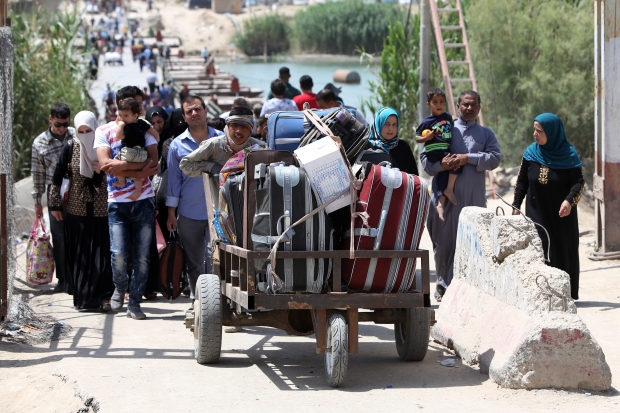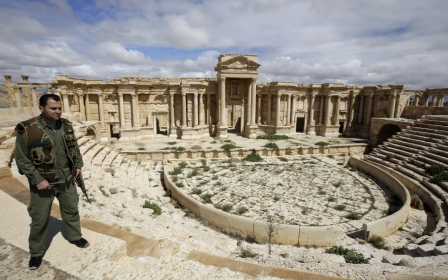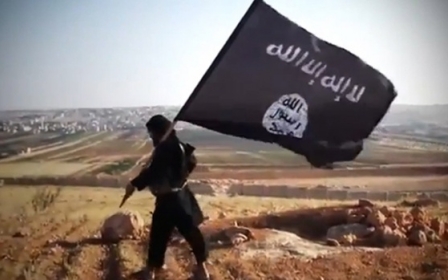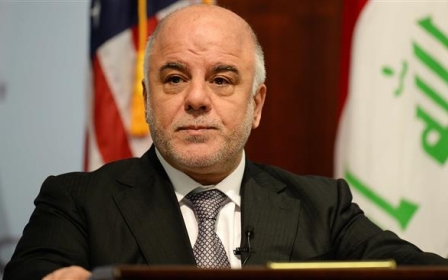IS leader criticises Saudi's 'so-called war' in Yemen
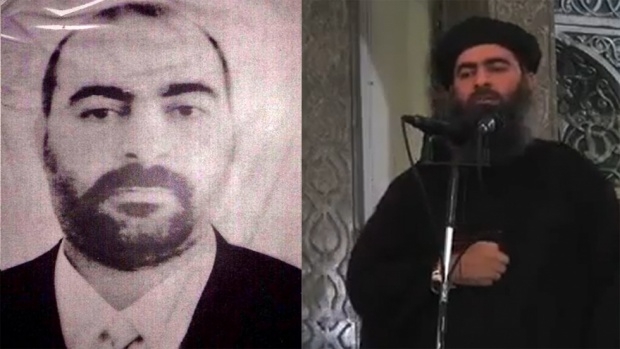
Abu Bakr al-Baghdadi, self-proclaimed leader of the Islamic State (IS), released his first audio recording in six months following claims that he was badly injured in March.
Reports in March said that, as a result of his injuries, Baghdadi had stepped down from the day-to-day running of IS, which many fear is now poised to overrun the ancient Syrian city of Palmyra.
The 30-minute recording was released by the group’s Furqan media outlet under the title “Go forth, whether light or heavy,” a Qur’anic quote from the ninth chapter of the holy book.
The recording is yet to be independently verified. However, references to recent events such as the war in Yemen, which began after Baghdadi was reportedly injured, have led many to believe that the speech is relatively new.
Here are a few key points from the wide-ranging speech, whose criticism of the rulers of Saudi Arabia was greeted with praise by many of the group’s Saudi supporters:
On the war in Yemen
Saudi Arabia is leading a coalition that launched airstrikes against Yemen’s Houthis for over six weeks until a US-brokered ceasefire came into place on Tuesday. In his speech first broadcast on Thursday night, Baghdadi condemned the action, saying it was little more than an attempt to please the West.
"Their war is nothing but an attempt to prove themselves once again to their masters from amongst the Jews and Crusaders," he said.
"It is nothing but a desperate attempt to turn the Muslims away from the Islamic State."
Baghdadi used the name of the first phase of the campaign, “Operation Decisive Storm,” which was replaced by “Operation Restore Hope” on 21 April but is still widely used, to denounce the operation as “a delusion” and a “so-called war”.
“God willing, [Operation Decisive Storm] is a final kick in the throes of death, made with the last breaths [of the rulers of Saudi Arabia].”
Despite his opposition to the war in Yemen targeting the Houthis, many of whom belong to the Zaydi branch of the Shiite sect, Baghdadi still dubbed members of the group as “rawafidh” or “those who reject,” a derogatory term for Shiite Muslims.
On Syria and Iraq
After a lightning advance in southern Syria, with huge numbers of Assad’s forces preoccupied with trying to take back the key northern province of Idlib from a coalition of rebels, IS fighters are poised to overrun the ancient city of Palmyra.
In his address, Baghdadi warned his followers that their enemies will likely attempt to attack the group in Syria before focusing on their territory in Iraq.
"We believe that their mobilisation will be for Raqqa and Aleppo before Mosul,” he said.
Raqqa is IS’s stronghold in Syria, while Mosul, the second-biggest city in Iraq, is considered to be their base in the country. Baghdadi was last seen in public there last July.
On Friday, activists in Syria’s Raqqa said that Friday prayer had been cancelled in the town because of fear of airstrikes by the US-led anti-IS coalition that has been targeting the group since September 2014.
Baghdadi warned his followers to be “cautious”.
He also condemned Iraqi civilians in the western province of Anbar for seeking to flee to the relative safety of Baghdad.
In recent weeks, thousands of people have fled the province, where IS holds sway, for the capital where they must have a local resident vouch for them in order to be allowed in.
“Return to your lands, and remain in your homes, and seek shelter - after first seeking shelter with Allah - with your people in the Islamic State, for you will find therein… a warm embrace and a safe refuge," he said.
On Friday, an Iraqi security source said IS had killed up to 50 police officers in Ramadi, the provincial capital of Anbar, and seized control of most parts of the city.
Thousands of families fled the city on Friday morning after the IS advance, a source told Sky News Arabia.
On 'obligation'
Echoing the words of previous speeches, Baghdadi said that it was an obligation for all Muslims to join Islamic State, which declared itself a “caliphate” last June.
“Almighty God made it an obligation to fight in his name, and He ordered you to fight His enemies… and annihilate the unbelievers.”
“There is no excuse for any Muslim capable of emigrating to the Islamic State, or capable of bearing weapons in his [current] location [not to do so]. We call upon all Muslims in every place to emigrate to Islamic State, or to fight where he is.”
Islamic State has been able to attract large numbers of foreign recruits from countries as far apart as Australia, Saudi Arabia, the UK and Kosovo.
In his address, Baghdadi said he was not trying to mobilise Muslims “out of weakness or paralysis, but out of love and compassion for you,” promising a life of “glory, dignity and wealth” for those who responded to the call.
However, there are signs that some of those who have “emigrated” to the Islamic State have become disillusioned with the organisation.
This week it was claimed that two British schoolgirls who joined IS last June are now on the run from the group and want to return to the UK, but may not be permitted to return.
Middle East Eye propose une couverture et une analyse indépendantes et incomparables du Moyen-Orient, de l’Afrique du Nord et d’autres régions du monde. Pour en savoir plus sur la reprise de ce contenu et les frais qui s’appliquent, veuillez remplir ce formulaire [en anglais]. Pour en savoir plus sur MEE, cliquez ici [en anglais].


